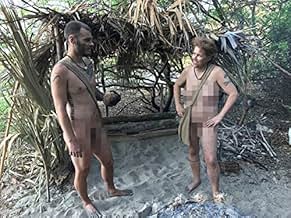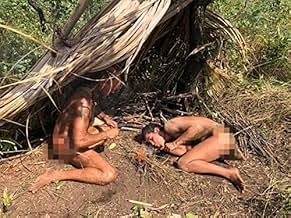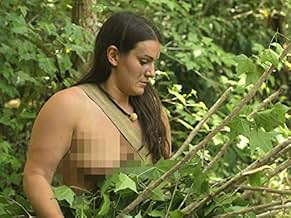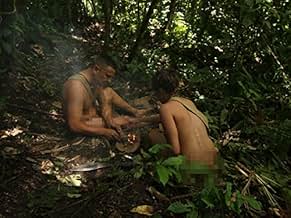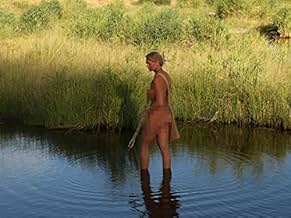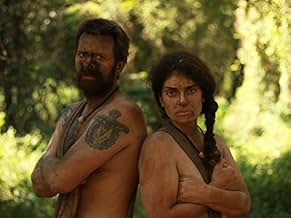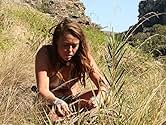Duas pessoas passam 21 dias em um ambiente selvagem, sem comida, sem água e sem roupas. Eles precisam sobreviver da maneira que vieram ao mundo, buscando comida, lutando contra o clima e as ... Ler tudoDuas pessoas passam 21 dias em um ambiente selvagem, sem comida, sem água e sem roupas. Eles precisam sobreviver da maneira que vieram ao mundo, buscando comida, lutando contra o clima e as adversidades.Duas pessoas passam 21 dias em um ambiente selvagem, sem comida, sem água e sem roupas. Eles precisam sobreviver da maneira que vieram ao mundo, buscando comida, lutando contra o clima e as adversidades.
- Indicado para 4 Primetime Emmys
- 7 indicações no total
Explorar episódios
Avaliações em destaque
I've seen all of the episodes. Two survivalists (with different levels of experience) must work together in an attempt to brave the elements for 21 days.
Each show is set in a different locale, so the participants/victims are subjected to a wide variety of naturally occurring tortures (horrendous bug bites, sunburns, blisters, etc.).
The precarious situations are interesting and educational for the most part. For those with a touch of ADHD, it can be a challenge to sit through slower episodes.
The struggle to create fire and obtain the basic essentials for life is an element making this show interesting. The interpersonal dynamics surrounding the roles each participant must contribute are surprising in many instances. This is probably the shows greatest attribute, which might be very mediocre otherwise.
Admittedly, I haven't seen other shows in this genre, but find this show engaging, not because of the blurred out nudity, but largely due to the mental and physical challenges the participants endure, along with the ebb and flow of their interpersonal relationship.
When my significant other and I watch the show we frequently say "why would anyone do this because they can't be getting much money?" I suppose certain people are willing to take on any challenge or would do almost anything to be on TV; even it means lying in bed with snakes and horrible critters of the night.
9 out of 10.
Each show is set in a different locale, so the participants/victims are subjected to a wide variety of naturally occurring tortures (horrendous bug bites, sunburns, blisters, etc.).
The precarious situations are interesting and educational for the most part. For those with a touch of ADHD, it can be a challenge to sit through slower episodes.
The struggle to create fire and obtain the basic essentials for life is an element making this show interesting. The interpersonal dynamics surrounding the roles each participant must contribute are surprising in many instances. This is probably the shows greatest attribute, which might be very mediocre otherwise.
Admittedly, I haven't seen other shows in this genre, but find this show engaging, not because of the blurred out nudity, but largely due to the mental and physical challenges the participants endure, along with the ebb and flow of their interpersonal relationship.
When my significant other and I watch the show we frequently say "why would anyone do this because they can't be getting much money?" I suppose certain people are willing to take on any challenge or would do almost anything to be on TV; even it means lying in bed with snakes and horrible critters of the night.
9 out of 10.
I never watched this program until this year (2015) and I found myself "binge watching" most of the episodes over a couple of weekends. The show is like eating potato chips. You can't watch just one, so if you are DVR-ing, you will probably do what I did and watch perhaps four in a sitting. But I'm a skeptic, and when you watch a bunch of these in one sitting, certain patterns emerge. There's more to this show than meets the eye. In three of the episodes that I watched this weekend, someone conveniently finds an old metal pot, which is interesting because it doesn't make sense that a pot would just magically appear, like the holy grail, in the snake-infested muck of a Louisiana bayou, or in an alligator-infested river in Botswana? If you don't have access to potable water, you're not going to make it to 21 days and this is an expensive production. "Look at that! A pot! I can't believe it! Now we can boil water!" Also, it seems each person can only bring one tool for the trip, which in most cases is a knife and a fire starter. (Lol, how odd that they NEVER each bring the same thing, like, "Darn, I brought a fire starter too!! Now what are we going to do?") And while it is fun to see the scary animals lurking in the bushes, you will never see a shot of a lion or hyena in the same frame as the people. Hyenas are opportunistic feeders who select the easiest and most attractive food. Are you telling me that these two naked and unarmed humans would not be a tasty snack? How dangerous are these places, for real? Is there actually a resort a few yards away that you can't see? I mean, really, would the producers spend all that money on one episode, only to leave the participants in their little shelters at night, with no protection, and go back to their cozy campsite, only to return in the morning to find that they'd been devoured by a lion? I don't think so. I could pull off a version of this show in my own back yard, sit naked in a patch of trees between my house and my neighbor's for 21 days, digging a hole for water and catching termites, grasshoppers and squirrels to eat. You would never know my house was 20 feet in front of me. But I do like this show. In fact, I am giving it a 6 out of 10. In addition to being entertaining, it is educational and actually a fascinating concept. You can learn a lot about survival techniques from this show, and the scenery is beautiful. I just think you have to keep an open mind and take it for what it is, or isn't.
I gave this series 6 / 10 stars because the basic premise is fascinating ; "Let's see if modern humans can survive under precisely the same conditions that our prehistoric ancestors faced" - and also - because I really do think that it is useful in educating others on the importance of learning how to survive and make it in the absence of a grocery store or an iphone. After watching nearly all of the episodes in the series (because it clearly "seems" to have more redeeming social and academic value than CBS television's "Survivor" reality game show, and because a certain measure of voyeurism is completely natural) - I have noticed a rather statistically unacceptable trend in this exercise. Of all of the "Adams and Eves" that they have released nude into harshness, so far - ALL of the men have been failures at this exercise - as well as occasionally behaving in ways reminiscent of wimps, cry babies, klutzes, pompous braggers, and dullards - where - despite supposedly having extensive survival training and experience - they have nonetheless been totally faced, owned, out survived, and left behind by their female counterparts.
Although obviously there are vast numbers of strong, powerful women out there who could probably survive in a jungle as successfully as Donald Trump can turn over real estate - I find it hard to believe - given human history, that they (men) could come out looking this pathetic - this often - in comparison to their female counterparts. Don't get me wrong - I am, in fact, NOT a Neanderthal - but with apologies to all radical, militant, man hating, ultrafeminist, penis envying neurotics out there - history didn't turn out this way. Sorry to some of you ladies (and some of you gentlemen as well - sadly) if I have offended you personally by being a tad bit factual.
This seems to me to be yet another male bashing campaign, like the animated works of Seth Mcfarlane and Matt Groenig (who are ironically men - go figure - their shows are still funny though), and almost every situation comedy made after the close of the Norman Lear era of Television. This "experiment" seems so totally rigged and stacked - that it feels like loaded dice in a back alley craps game. As a male - I can't help but feel like I'm watching my gender get slammed yet again.
This program seems like militant feminist propaganda. It reinforces a viewpoint that we men are all childish idiots - or at least weaker and less capable, therefore inferior. Either that - or casting must be getting their male participants from areas where no one's ever heard of a football, or the ground water is seriously tainted.
Maybe future episodes will be more even keeled and balanced - but in a way - I seriously doubt it.
Although obviously there are vast numbers of strong, powerful women out there who could probably survive in a jungle as successfully as Donald Trump can turn over real estate - I find it hard to believe - given human history, that they (men) could come out looking this pathetic - this often - in comparison to their female counterparts. Don't get me wrong - I am, in fact, NOT a Neanderthal - but with apologies to all radical, militant, man hating, ultrafeminist, penis envying neurotics out there - history didn't turn out this way. Sorry to some of you ladies (and some of you gentlemen as well - sadly) if I have offended you personally by being a tad bit factual.
This seems to me to be yet another male bashing campaign, like the animated works of Seth Mcfarlane and Matt Groenig (who are ironically men - go figure - their shows are still funny though), and almost every situation comedy made after the close of the Norman Lear era of Television. This "experiment" seems so totally rigged and stacked - that it feels like loaded dice in a back alley craps game. As a male - I can't help but feel like I'm watching my gender get slammed yet again.
This program seems like militant feminist propaganda. It reinforces a viewpoint that we men are all childish idiots - or at least weaker and less capable, therefore inferior. Either that - or casting must be getting their male participants from areas where no one's ever heard of a football, or the ground water is seriously tainted.
Maybe future episodes will be more even keeled and balanced - but in a way - I seriously doubt it.
My rating is generous but I would like to encourage the producers to improve the show.
The participants are generally under-prepared and easily overwhelmed. Many claim to have survival skills but these amount to no more than camping skills.
Some claim to be hunters but take away the weaponry and they go hungry.
Most are also overweight the wrong way, that is, they didn't pile up the fat to endure hunger. They are overeaters that collapse when their poor diet changes.
The producers also feel the need to create a degree of controversy and the participants are pushed (in some case, possibly eager) to share their social theories of gender. Needless to say, these are infantile and in no way explain anyone's actions, not even their very own.
To add insult to injury, the producers are selecting people with a high need for approval and acceptance. Some are good folk, true, but that's really besides the point.
This does not make for good TV.
The participants are generally under-prepared and easily overwhelmed. Many claim to have survival skills but these amount to no more than camping skills.
Some claim to be hunters but take away the weaponry and they go hungry.
Most are also overweight the wrong way, that is, they didn't pile up the fat to endure hunger. They are overeaters that collapse when their poor diet changes.
The producers also feel the need to create a degree of controversy and the participants are pushed (in some case, possibly eager) to share their social theories of gender. Needless to say, these are infantile and in no way explain anyone's actions, not even their very own.
To add insult to injury, the producers are selecting people with a high need for approval and acceptance. Some are good folk, true, but that's really besides the point.
This does not make for good TV.
There's something rotten in Denmark.
I'm guessing just like HGTV with their unemployed people with hundreds kf thousands in the bank to buy or renovate a huge house.
These are supposed to be survival experts yet they suffer horrendously while the camera man is like there it is a freaking antelope & you missed it.
Then there's youtube & the guy has shorts & nothing else & build a house with an indoor pool.
My theory is the producers think we all want to watch misery &suffering I'd rather see someone with skills & talent rock this without malnutrition. We aren't all psychopaths that only enjoy suffering.
Show us their skill for a change.
I'm guessing just like HGTV with their unemployed people with hundreds kf thousands in the bank to buy or renovate a huge house.
These are supposed to be survival experts yet they suffer horrendously while the camera man is like there it is a freaking antelope & you missed it.
Then there's youtube & the guy has shorts & nothing else & build a house with an indoor pool.
My theory is the producers think we all want to watch misery &suffering I'd rather see someone with skills & talent rock this without malnutrition. We aren't all psychopaths that only enjoy suffering.
Show us their skill for a change.
Você sabia?
- CuriosidadesFemale survivalists are given tampons by the production crew if needed during their challenge.
- ConexõesFeatured in Chelsea Lately: Episode #7.97 (2013)
Principais escolhas
Faça login para avaliar e ver a lista de recomendações personalizadas
Everything New on Hulu in August
Everything New on Hulu in August
There's a whole lot to love about Hulu's streaming offerings this month — get excited for brand-new series premieres and film favorites to watch at home.
- How many seasons does Naked and Afraid have?Fornecido pela Alexa
Detalhes
- Tempo de duração
- 43 min
- Cor
Contribua para esta página
Sugerir uma alteração ou adicionar conteúdo ausente








